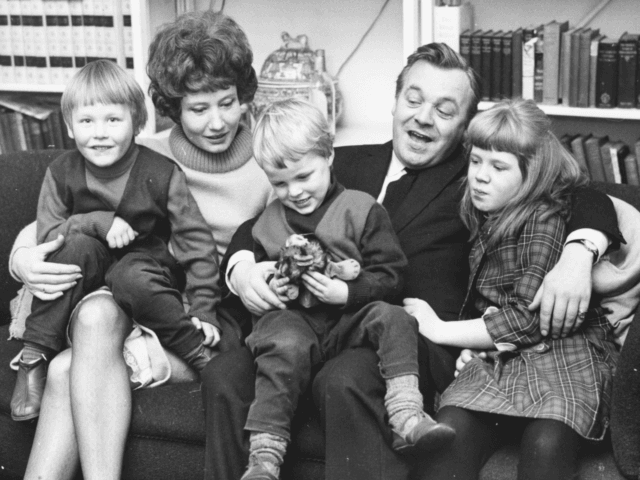The fertility rate in England and Wales has fallen to the lowest level in recorded amid the Chinese coronavirus pandemic, at 1.58 children per woman last year.
In 2020, the British fertility rate fell by 4.2 per cent from 2019 and was 3.1 per cent lower than the previous low in 2001, according to official figures from the Office for National Statistics (ONS).
Fertility rates are determined by calculating the average number of children a woman gives birth to in her lifetime. In order to naturally maintain a country’s population, a fertility rate of 2.1 children per woman is thought to be required.
The ONS report found that in 2020, there were 613,936 live births in England and Wales, a decline of 4.1 per cent over the previous year, despite people being confined to their homes for much of the pandemic.
While the native British population saw a decline in fertility rate to 1.5 children per woman, however, the foreign population actually saw its fertility rate increase to 1.98. The most common country of origin for foreign parents was Pakistan, with Romanians coming in second.
In 2020, 29.3 per cent of live births were to foreign women, a record high since records began in 1969, although it falls in line with a steady increase over the previous decades, the ONS said.
While fertility rates have continually fallen, the actual population of Britain has continued to increase, with mass migration accounting for “about 90 per cent of population growth between 2017 and 2019… linked to the impact of arrivals from abroad and their subsequent UK-born children,” according to a report from the Migration Watch UK think tank earlier this year.
The scale of mass migration has seen the foreign-born population climb to nine million and the ethnic minority population rise to 13 million, which the think tank warned could lead to a breakdown in social cohesion.
The United Kingdom’s official statistician said that increased access to contraception, people delaying childbirth, and the increasing costs of raising a family were likely factors in the decline.
The British Pregnancy Advisory Service (BPAS) blamed the economic uncertainty surrounding the coronavirus pandemic as the cause for the sharp decline in fertility rates.
The charity — a major abortion provider — noted that other factors including the “desire to progress at work, an awareness of the ‘motherhood pay penalty’ and the ever-increasing cost of raising a child” have also contributed to the decline in women having children.
“This data reflects trends towards later motherhood and smaller family size,” the associate director at BPAS, Katherine O’Brien, said.
One reason for the high cost of raising families in Britain has been the government’s refusal to enact pro-family policies, which have seen success in socially conservative European countries like Poland and Hungary.
While the two Central European nations have put in place financial incentives such as tax breaks for mothers, the British government has maintained anti-family taxation policies, including taxing individual earnings rather than those of the family unit as a whole.
The policy means that families that are dependent on a single middle-class income of £50,000 will take home less money than two salaries of £25,000, for example — disincentivising working people to form families.
Others have suggested that anxiety over the supposed climate change crisis may be contributing to people having fewer children.
Human and planetary health fellow at Stanford Univesity in America, Dr Britt Wray, told the Daily Mail that she believed the panic surrounding climate change is “playing a roll in declining birth rates in many countries around the world,” including in the United Kingdom.
Dr Wray was one of the co-authors of a study published in September in British medical journal The Lancet, which found that 41 per cent of young people (16-25 year-olds) are “hesitant” to have children over concerns about the climate.
The study of over 10,000 young people also found that nearly six in ten were convinced that “humanity is doomed”.
“Recent research on the psychological impacts of climate change suggests that people’s anxieties about global warming may be part of the story” of declining fertility, Dr Wray said.
Earlier this month, the former chairman of Britain’s Financial Services Authority (FSA), Lord Adair Turner, argued that Western nations should actually celebrate the fall in fertility rates, as it will enable the UK and other Western countries to meet carbon emission reduction goals.
He said that reducing humanity’s impact on the environment through having fewer children will make it “easier to achieve net-zero greenhouse gas emissions while supporting prosperity growth in developing countries.”
Follow Kurt Zindulka on Twitter here @KurtZindulka

COMMENTS
Please let us know if you're having issues with commenting.